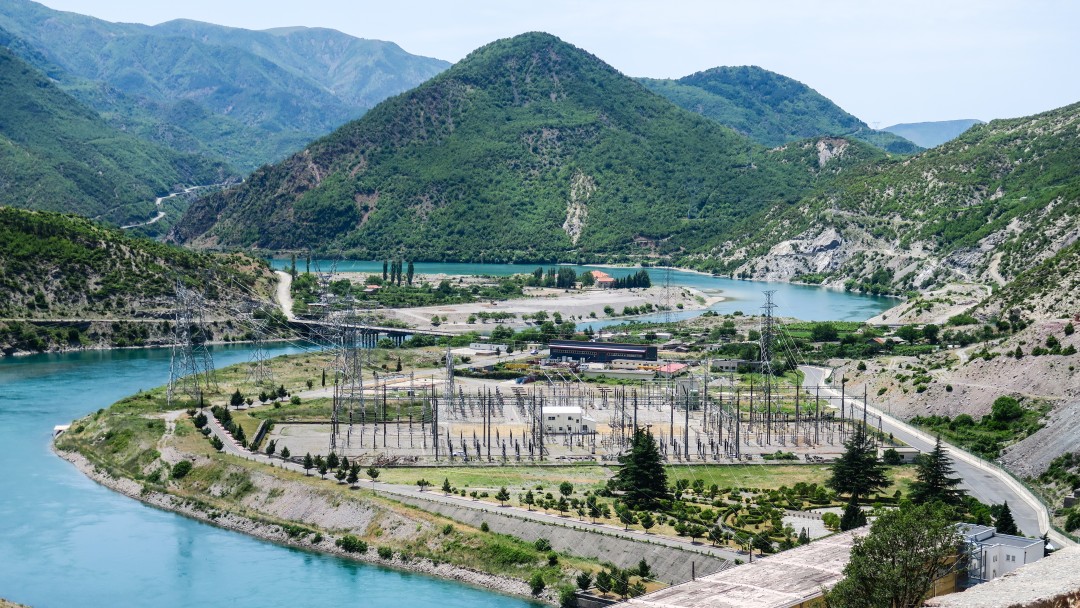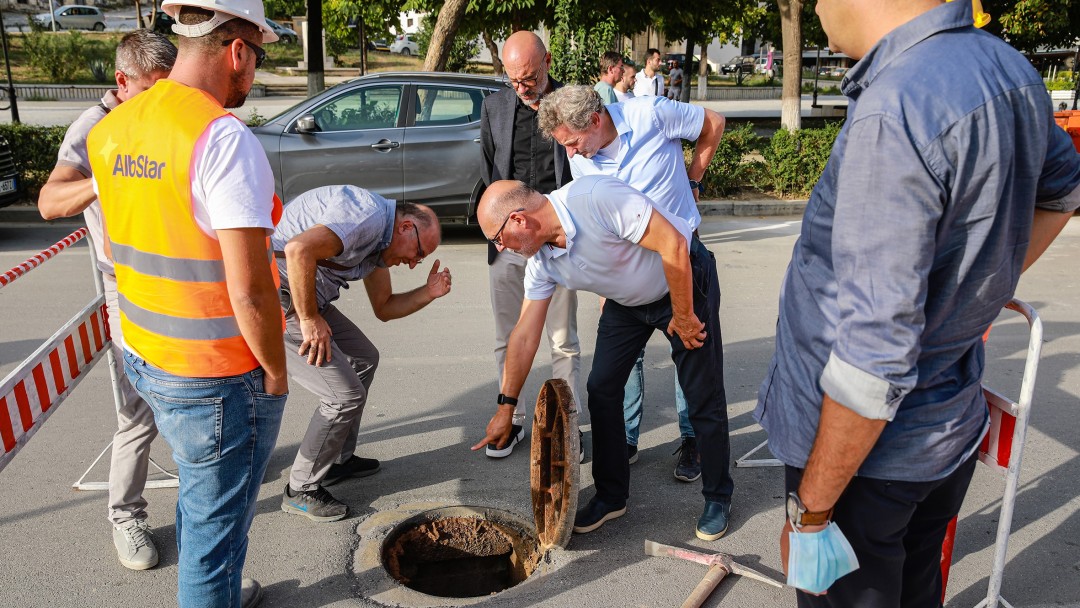News from 2023-08-30 / KfW Development Bank
European Perspectives: Albania on its way to the European Union
With the help of KfW, Germany is one of the most important donors supporting the EU accession process.

Small Albania shares the history of many Eastern European countries: Until the fall of the "Iron Curtain" and the end of the Cold War, it was dominated by a communist dictatorship and largely isolated from the outside world. Since the end of the 1980s, however, it has undergone significant social and economic development - also with the help of KfW, which has been active in the country since 1988 and has provided long-term support for the transformation process from a state-controlled to a free economy. Since the beginning of cooperation, around EUR 1.2 billion have been committed to the country. "Considering the country's population of about 2.5 million, this is a considerable sum. Albania is one of our most important cooperation partners in Southeast Europe," says KfW Office Manager Brit Horschke in the capital Tirana. Albania has been a NATO member since 2009 and is seeking membership in the European Union. The application was submitted back in 2014, and accession negotiations began in July 2022.
KfW is intensively supporting Albania in meeting the conditions for joining the European Union. "The country has adopted a new National Development and Integration Strategy (NDSEI) until 2030, which points the way forward for rapprochement with the EU," explains Brit Horschke. In line with the country strategy of the of the German Federal Ministry for Economic Cooperation and Development (BMZ), KfW's commitment is oriented towards this new strategy. "With our focus on the energy sector, sustainable urban development and vocational training, we support three of the six central NDSEI fields of action," emphasises Horschke. Today, Germany is the largest bilateral and the leading donor ("lead donor") in the central promotional areas of energy and sustainable urban development.
In particular, KfW promotes investments in the country's electricity infrastructure and the expansion of high-voltage lines to neighbouring countries. The connections between Albania and Montenegro (155 kilometres) and Albania and Kosovo (240 kilometres) have already been completed. Another connection to northern Macedonia is under construction, and the expansion of lines to Greece is currently being studied. "These projects are an important contribution to the accession process, because they enable the Albanian grids to be connected to the European energy network," says Brit Horschke.

Albania can certainly be a role model for the expansion of renewable energies in Europe: The country generates almost 100% of its energy from hydropower - but this dependence on the weather also poses problems. If there is no rain, too little energy is produced. When there is a lot of precipitation, energy has to be exported - and this is where the high-voltage transmission lines promoted by KfW play a role. However, KfW Development Bank currently also supports the rehabilitation of the hydropower plant in Fierza, which produces almost 1,500 gigawatt hours of electricity per year and thus a quarter of the energy generated in Albania.
The urban development projects supported by KfW are also an important support for the accession process to the European Union: to date, the supply of drinking water in urban areas is also inadequate, averaging only around 16 hours a day. In addition, there is still a lack of adequate sewage and waste disposal. KfW is supporting the country in modernising urban infrastructure. "In the water, wastewater and solid waste sectors, our investments are working towards enabling Albania to meet the standards and norms required by the European Union," explains Bledar Dollaku, local sustainable urban development specialist at KfW's Tirana office. Projects financed by KfW also include measures for integrated waste management, such as facilities for separate waste collection and recycling.
In addition, KfW is committed to supporting young Albanians in education and training. Young men and women are taught in training and further education centres to expand their technical skills - the training is practically oriented to the needs of the labour market. These programmes help to create job prospects for young people in their own country.
According to Brit Horschke, it is also crucial for the accession process that education and health care are improved in addition to economic development. "These areas - in addition to the general political and economic environment, which many Albanians would like to see still more transparent and inclusive - are the ones that many people say make them look abroad and migrate," she knows from experience. Further progress in social and economic development is therefore necessary to keep qualified young people in the country.
KfW is an important partner in this for the south-eastern European country. "Financial Cooperation with Albania is qualitatively and quantitatively very important for the accession process," Brit Horschke and Bledar Dollaku conclude.

Share page
To share the content of this page with your network, click on one of the icons below.
Note on data protection: When you share content, your personal data is transferred to the selected network.
Data protection
Alternatively, you can also copy the short link: https://www.kfw-entwicklungsbank.de/s/enzBWrMC.C93A
Copy link Link copied